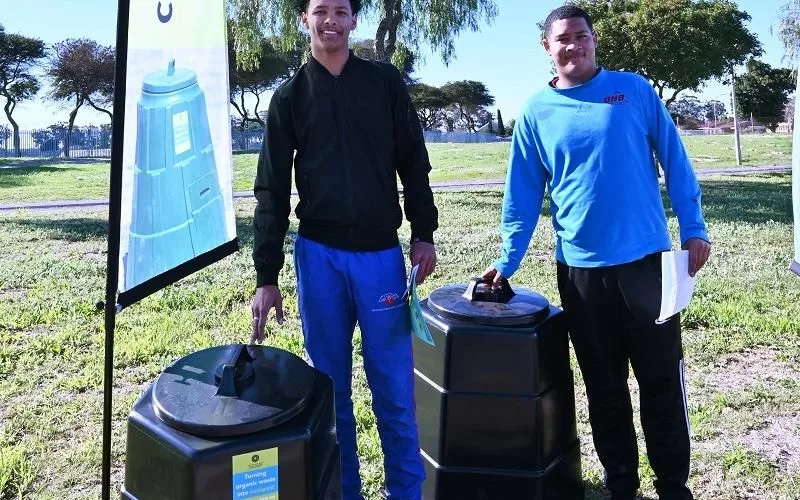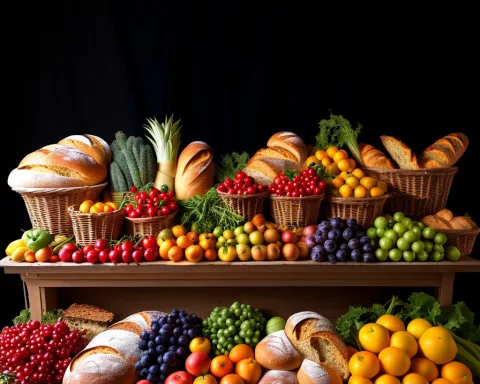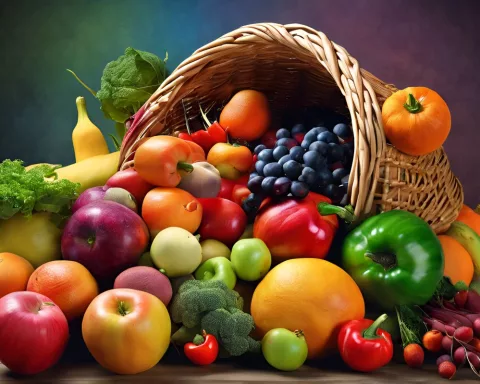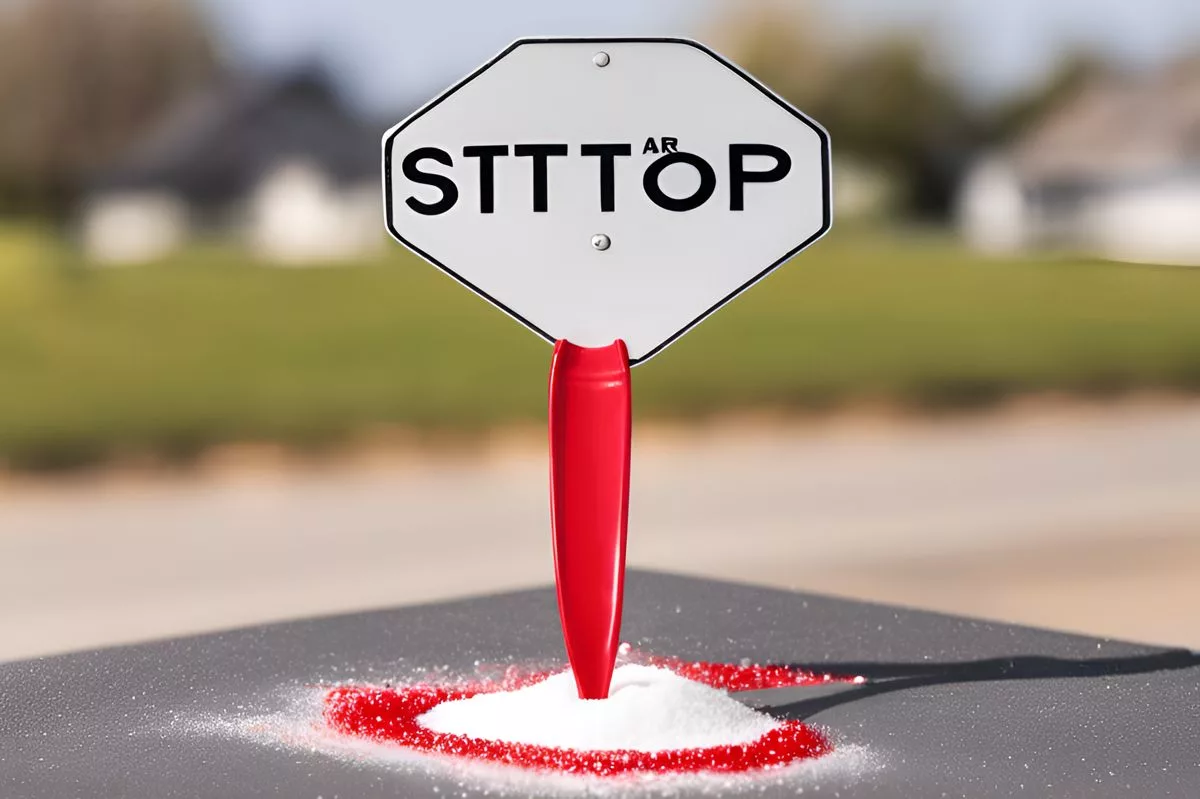‘Stop Food Waste Day’ is an important day that reminds us to make responsible choices, reduce carbon emissions, and strive for sustainability. Food waste contributes to global warming and climate change by releasing methane gas. We can take simple steps like mindful meal planning, proper storage of food, creative cooking, and supporting food redistribution initiatives to reduce food waste. Businesses also play a significant role in reducing food waste. By making small changes, we can safeguard our future and create a more resilient planet.
A Pressing Global Concern
The problem of food waste is immense and critical. The disposal of food and other organic waste in landfills results in decomposition in an environment deprived of oxygen. This process produces landfill gas, primarily methane, which has a global warming potential 25 times more than that of carbon dioxide. The continuous release of this gas significantly contributes to the acceleration of climate change brought on by human activities.
‘Stop Food Waste Day’, observed every year on the 23rd of April, is not just a typical commemoration. This day serves as an alarm bell for transformation, urging us to adopt responsibile consumption practices, minimize our carbon emissions, and strive for sustainability. As we confront the challenges presented by climate change, this day provides an opportunity to ponder our daily routines and their impacts on the world. The 2024 ‘Stop Food Waste Day’ continues this tradition, serving as a remarkable avenue for Cape Town’s Urban Waste Management Directorate to advocate for responsible waste management practices.
A Pressing Global Concern
The problem of food waste is immense and critical. The disposal of food and other organic waste in landfills results in decomposition in an environment deprived of oxygen. This process produces landfill gas, primarily methane, which has a global warming potential 25 times more than that of carbon dioxide. The continuous release of this gas significantly contributes to the acceleration of climate change brought on by human activities.
Home-Based Solutions to Reduce Food Waste
However, transformation begins at the grassroot level. There are a multitude of simple yet effective tactics that individuals and families can implement to lessen food waste.
The first and foremost step involves altering our mindset towards food. By acknowledging the resources – energy, water, and nutrients – invested in the production of food, we can view it as a highly valuable commodity that should not go to waste.
The practice of mindful meal planning can also make a significant difference. Planning our meals ahead of time can deter overeating and unnecessary shopping. A well-thought-out shopping list, based on the meals we plan to cook, can ensure that we purchase only what we require and utilize it effectively.
Another essential strategy is the proper storage of food. The suitable storage of perishable items like fruits, vegetables, and dairy products can prolong their freshness and prevent premature rotting. This can be accomplished by using airtight containers, refrigerating food, and marking containers to keep track of the perishable items’ shelf life.
Cooking Creatively and Educated Consumption
Next, we can explore the world of innovative cooking. Using leftover food and extra ingredients to create delicious, new recipes can add zest to our meals. A touch of creativity and experimentation can give a second life to leftover food, transforming them into appetizing soups, stir-fries, salads, and casseroles.
We should also be aware of portion sizes. It is advisable for each member of the household, except for young children, to serve their own portions, taking only as much food as they intend to eat. This prevents contamination of uneaten food on half-finished plates, thereby avoiding waste.
Understanding the difference between “best before” and “expiry” or “use by” dates is crucial. While “best before” denotes the period of optimal taste and quality, the “expiry” or “use by” date indicates the last day the product is safe for consumption.
Community Efforts and Business Contributions
Supporting food redistribution initiatives can substantially reduce food waste. By donating surplus food to local food banks and community groups, we can combat hunger within our communities while reducing food waste.
Composting at home is another environmentally friendly method of managing organic waste. Through composting organic waste like fruit and vegetable peels, coffee grounds, and eggshells, we can prevent waste from reaching landfills and create nutrient-dense compost for gardening and landscaping purposes.
Moreover, businesses hold a significant responsibility in reducing food waste. The City has established a goal for businesses to cut their food waste by half immediately and eliminate it entirely by 2027. The City encourages monitoring and reporting of irresponsible food waste disposal by restaurants and catering businesses, with the City providing solutions for violators, such as connecting them with organic waste solutions.
In conclusion, as citizens, we are all urged to participate in this initiative, striving to reduce food waste over the upcoming year. Together, we can build a stronger city and planet, guaranteeing a prosperous future for the generations to follow. As Alderman Grant Twigg, Mayoral Committee Member for Urban Waste Management, aptly puts it, “Together, we can create a more resilient city and planet and allow future generations to thrive.”
Therefore, let’s strive to make every day a ‘Stop Food Waste Day’. Each small action contributes to a larger transformation. After all, it’s not just about preserving our planet – it’s about safeguarding our future.
1. What is ‘Stop Food Waste Day’ and why is it important?
‘Stop Food Waste Day’ is a day observed every year on the 23rd of April that reminds us to make responsible choices, reduce carbon emissions, and strive for sustainability. Food waste contributes to global warming and climate change by releasing methane gas. By taking simple steps like mindful meal planning, proper storage of food, creative cooking, and supporting food redistribution initiatives, we can reduce food waste and build a greener tomorrow.
2. Why is food waste a pressing global concern?
The disposal of food and other organic waste in landfills results in decomposition in an environment deprived of oxygen. This process produces landfill gas, primarily methane, which has a global warming potential 25 times more than that of carbon dioxide. The continuous release of this gas significantly contributes to the acceleration of climate change brought on by human activities.
3. What are some home-based solutions to reduce food waste?
Individuals and families can implement a multitude of simple yet effective tactics to lessen food waste. These include altering our mindset towards food, mindful meal planning, proper storage of food, cooking creatively, educated consumption, and composting at home.
4. How can businesses contribute to reducing food waste?
Businesses hold a significant responsibility in reducing food waste. The City has established a goal for businesses to cut their food waste by half immediately and eliminate it entirely by 2027. The City encourages monitoring and reporting of irresponsible food waste disposal by restaurants and catering businesses, with the City providing solutions for violators, such as connecting them with organic waste solutions.
5. What are some food redistribution initiatives that can reduce food waste?
Supporting food redistribution initiatives can substantially reduce food waste. By donating surplus food to local food banks and community groups, we can combat hunger within our communities while reducing food waste.
6. Why is it important to participate in this initiative and reduce food waste?
As citizens, we are all urged to participate in this initiative, striving to reduce food waste over the upcoming year. Together, we can build a stronger city and planet, guaranteeing a prosperous future for the generations to follow. Each small action contributes to a larger transformation. After all, it’s not just about preserving our planet – it’s about safeguarding our future.












